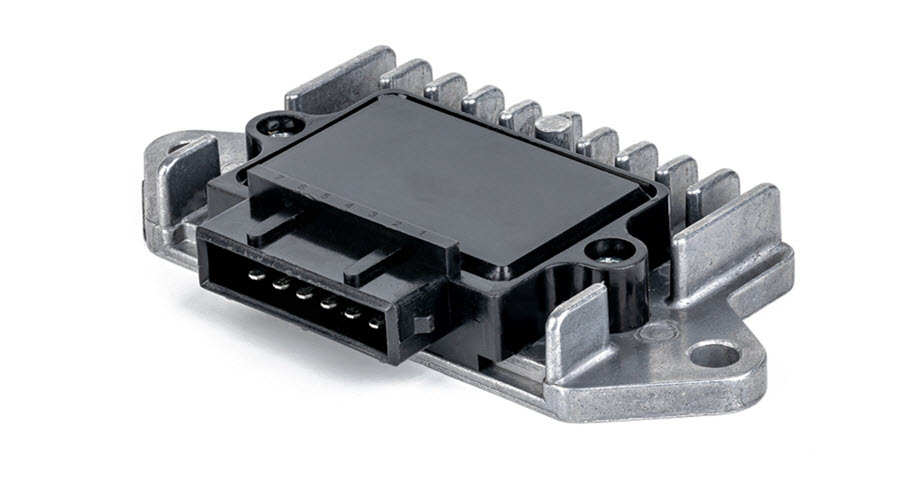Ignition modules are electronic components that play a critical role in starting your vehicle, and if they fail, it can lead to a host of problems. In this article, we’ll explore when and why you should consider replacing your BMW’s ignition module.
What is an ignition module?
First, let’s take a closer look at what an ignition module does. The ignition module is responsible for generating the spark that ignites the fuel in your engine’s cylinders. This spark is created by a combination of the ignition module and the spark plugs, and it’s what gets your engine running. When your ignition module is functioning correctly, your vehicle should start quickly and smoothly, and your engine should run smoothly and efficiently.
What causes ignition module failure?
However, as with any electronic component, your BMW’s ignition module can fail over time. There are several common reasons why this might happen:
- Wear and Tear: Over time, the internal components of your ignition module can wear down, leading to reduced performance and eventually failure.
- Overheating: The ignition module generates a significant amount of heat when in use, and if it overheats, it can damage the internal components and lead to failure.
- Moisture: Moisture can also be a problem for ignition modules, as it can cause corrosion and other damage to the internal components.
Signs of Ignition Module Failure
So, how do you know if your BMW’s ignition module is failing? Here are some common signs that you should look out for:
- Difficulty Starting: If your BMW is taking longer than usual to start or requires multiple attempts to start, it could be a sign that your ignition module is failing.
- Engine Misfires: If your engine is misfiring or running rough, it could be a sign that your ignition module is not generating the necessary spark to ignite the fuel.
- Stalling: If your BMW is stalling or shutting off unexpectedly, it could be a sign that your ignition module is failing.
- Reduced Fuel Efficiency: A failing ignition module can lead to reduced fuel efficiency, as your engine may not be running as efficiently as it should be.
If you’re experiencing any of these symptoms, it’s important to have your BMW inspected by a qualified mechanic. They can diagnose the problem and determine if your ignition module needs to be replaced.
When to Replace Your Ignition Module
So, when should you consider replacing your BMW’s ignition module? The answer depends on several factors, including the age of your vehicle, how often you drive it, and the condition of your ignition module. As a general rule, most ignition modules will last for around 100,000 miles, but this can vary depending on the quality of the component and how well it has been maintained.
If your BMW is more than 10 years old or has over 100,000 miles on the odometer, it’s a good idea to have your ignition module inspected by a qualified mechanic. They can determine if it’s still functioning correctly and if it needs to be replaced.
Additionally, if you’re experiencing any of the symptoms listed above, you should have your ignition module inspected as soon as possible. Ignoring these signs could lead to more severe problems down the road, such as engine damage or failure.
Replacing your BMW’s ignition module can be a significant investment, but it’s often the best course of action if your module is failing. Not only will it improve your vehicle’s performance and reliability, but it can also save you money in the long run by preventing more severe problems from developing.
When it comes to replacing your ignition module, it’s essential to choose a high-quality component that will last for years to come. OEM (Original Equipment Manufacturer) ignition modules are designed specifically for your BMW and are generally the best choice for replacement. While they may be more expensive than aftermarket options, they are typically more reliable and come with a warranty from the manufacturer.
It’s also important to have your ignition module replaced by a qualified mechanic who has experience working with BMWs. Ignition modules are delicate components, and if they are not installed correctly, it can cause more problems down the road.

Terry Sayther Automotive: BMW Experts
If you suspect your BMW needs a new ignition module, visit Terry Sayther Automotive in Austin. We proudly serve drivers from Buda, Kyle, Lakeway, and Tarrytown. Our family-owned auto shop is staffed with highly skilled technicians who understand the unique needs of European vehicles like yours. They will treat your car as if it were their own, performing necessary diagnostics and repairs with utmost integrity. You can rest assured we are certified professionals who provide honest feedback and recommend the best repair options available. So make an appointment at Terry Sayther Automotive—we’re here to keep your BMW running smoothly!
 1700 Fort View Rd,
1700 Fort View Rd,


